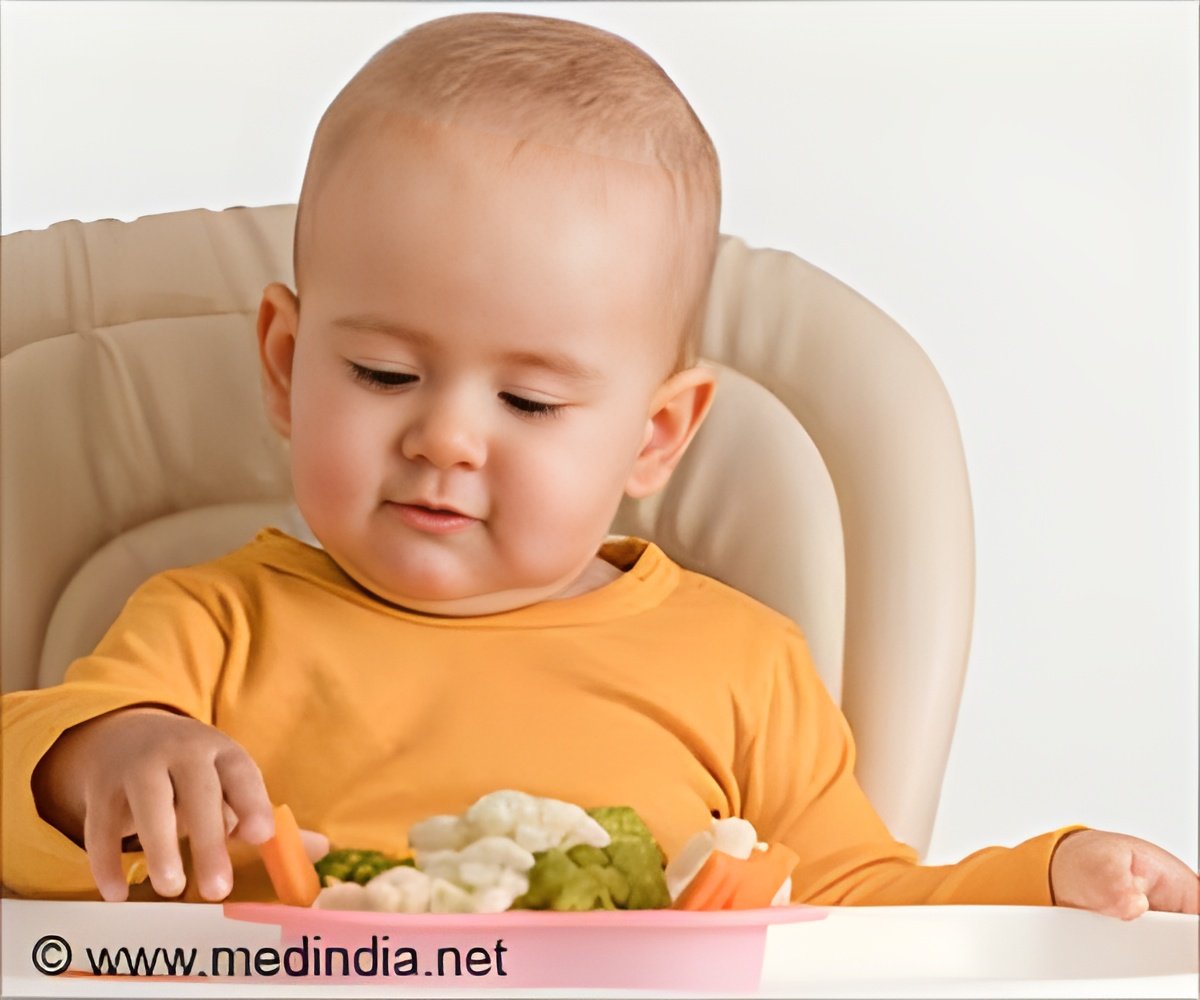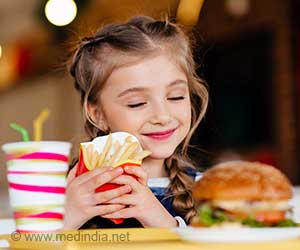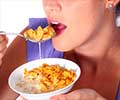New study finds UK toddlers consume nearly half their calories from ultra-processed foods, impacting long-term eating habits.

Ultra-processed food intake in toddlerhood and mid-childhood in the UK: cross sectional and longitudinal perspectives
Go to source). The study published in the European Journal of Nutrition analyzed data from 2,591 children born in the UK in 2007 and 2008. Parents recorded what their children ate and drank over three days.
Advertisement
Common Ultra-Processed Foods in Toddler Diets
When the toddlers were 21 months old, the most commonly eaten UPFs included flavored yogurts and wholegrain breakfast cereals, which are often thought of as healthy options. By the age of seven, popular UPFs included sugary cereals, white bread, and desserts.Lead author Dr. Rana Conway, of the UCL Institute of Epidemiology & Health Care, said: “Ultra-processed foods are not all bad for our health and the foods typically eaten by the toddlers in our study are ones that are seen as quite healthy."
“However, some wholegrain cereals and flavored yogurts have high levels of added sugar and salt and our study found that toddlers who consumed more ultra-processed foods also had a higher intake of these ingredients."
Advertisement
Concerns About Sugar and Salt in Toddler Diets
“This is concerning, especially as toddlers, in general, consume more added sugar and salt than is recommended. Aside from sugar and salt, a diet that includes a lot of ultra-processed food is less likely to get children used to the natural flavors of whole foods and therefore less likely to encourage healthy eating later in life.”Senior author Professor Clare Llewellyn, of the UCL Institute of Epidemiology & Health Care, said: “Eating patterns in the early years are important, as they help set habits that can persist through childhood and into adulthood. This was reflected in our findings, with 21-month-olds who ate more ultra-processed foods also likely to be higher consumers of ultra-processed foods at the age of seven.”
Advertisement
Understanding Ultra-Processed Foods
The researchers analyzed data from the Gemini twin cohort study, using the Nova classification to divide the food and drink consumed into four groups: unprocessed or minimally processed foods (eggs, milk, vegetables, fish and fruit); processed culinary ingredients (salt, butter and oil); processed foods (tinned fish, peanut butter and cheese); and UPFs (cereals, yogurts, industrially made sliced bread, biscuits, sausages, crisps).UPFs are typically industrially produced and contain ingredients not used or very rarely used in home cooking, such as emulsifiers, colorings, and sweeteners.
Long-Term Impact of Early Ultra-Processed Food Consumption
Toddlers were divided into five groups according to their ultra-processed food intake. The research team found that toddlers in the lowest UPF group consumed 28% of their calories from UPFs, while for toddlers in the highest of the five groups, this was 69%.They also found that ultra-processed foods consumed at 21 months predicted UPF consumption at seven years old. Toddlers who consumed the most UPFs were 9.4 times more likely to be in the highest UPF-consuming group at age seven compared to toddlers who consumed the lowest proportion of UPFs. The research team said this may be partly attributable to the “hyperpalatable” nature of these UPFs, as they tend to be foods higher in fat, sugar, and/or salt.
In all five UPF groups, the toddlers’ consumption of free sugars exceeded the UK government's recommended maximum of 5% of daily calorie intake. In the two highest UPF groups, added sugar intake exceeded 10% on average.
The researchers called for policies to redress the balance of children’s diets towards a lower proportion of UPFs, such as restricting the promotion of unhealthy foods marketed towards children, adding warning labels to products (e.g. those that are high in sugar), and subsidizing fresh and minimally processed food.
Healthier Alternatives to Ultra-Processed Foods for Kids
Dr Conway said: “It’s not easy to feed children healthily in our current food environment. Highly processed foods are often cheaper than the foods parents would like to give their children, such as fresh fruit and vegetables.“Also, despite labels suggesting they’re a healthy choice, ultra-processed foods marketed for children often contain too much sugar and salt. This makes it harder for parents to make healthy choices.”
In the paper, the research team also said there was a range of commercial products intended for young children that would not be classified as UPF as they did not contain UPF-style ingredients but mimicked UPFs in terms of textures. These might include vegetable sticks or puffs or snacks resembling cookies.
Early exposure to these foods, the researchers wrote, was unlikely to encourage the consumption of vegetables, even if the foods’ nutritional content was healthy (i.e., they did not include added sugar or salt).
In their study limitations, the researchers noted that people of white ethnicity and a higher socioeconomic status were over-represented in their population sample compared to the UK population as a whole.
Reference:
- Ultra-processed food intake in toddlerhood and mid-childhood in the UK: cross sectional and longitudinal perspectives - (https:link.springer.com/article/10.1007/s00394-024-03496-7)
Source-Eurekalert















